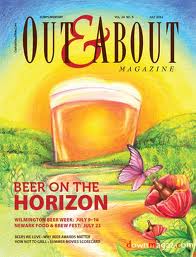For someone who never had a great interest in the English language in high school, I cannot offer much explanation for how I turned out to be a word nerd. I recall giving my parents book reports and such to proofread, but I would become agitated when there was a lot more red pen than I had bargained for. Yes, I wanted to know if I had left out a comma or apostrophe, but not that my syntax was wrong, or that there was a more efficient or eloquent way to express the thought.
It was during college that I became hooked on the New York Times Crossword Puzzle. Many view it as the pinnacle of puzzles, others, a self-inflicted punishment of puns and wordplay. But I saw it as a daily lesson on language and an opportunity to bone up on dinner party parlance. Let's face it: after a few years of doing them on a regular basis, you're going to pick up a lot. A lot of what I gained was due to my understanding of the Spanish language. I never studied Latin, but when conjugating words, similar rules apply to most of the romance languages. Even in English, it only takes filling in a word you think you know how to spell to find out that it doesn't fit, and then you know the right way. More than anything, I liked the challenge of finishing what I started.
How I became a Grammar Nazi among my friends, is still up in the air. I still lay no claim to being anything beyond decent at punctuation. I've always been a chatty person, and so my sentences tend to run on. So when writing creatively, I take a lot of creative license, which is, of course, another way of saying I don't follow the rules. This is evidenced in the very post you are reading, as it has taken me three paragraphs to finally mention the subject of this post: The War on Words, a new book written by my colleague, Bob Yearick.
Bob is the editor-in-chief at Out and About Magazine, a Wilmington, Del., monthly that covers the arts, entertainment and restaurant scenes. He has been writing for 45 years. As you can imagine, I was a little intimidated when first approached by O&A for writing a regular column, but I was encouraged in hearing that the staff enjoyed my blog posts. I saw this as another opportunity to strengthen my writing skills under the tutelage of a seasoned pro.
Bob’s “The War on Words” column, which debuted in 2007, has become a reader favorite. Now these columns have been collected in a paperback book. Each page contains a lesson in grammar, punctuation or pronunciation, all presented in an entertaining and sometimes snarky manner, of which Fork-n-Cork is heavy in content. Still, like crosswords, there are rules, people. And if we want to be taken seriously in the real world, we need to know how to spell.
The book reveals what Yearick believes is the most misused punctuation mark and the most misused word, as well as such language niceties as the true meaning of “begs the question.” Hint: it does not mean “raises the question.”
The English language and its abuse, especially by public figures, has been his obsession for many years. “I spent a lot of time in the corporate world and I’m a big sports fan,” he says. “Corporate types and sportscasters and sports writers are among the primary offenders when it comes to misusing the language. They’ve given me plenty of fodder for my column.”
In
the introduction to the book, Maria Hess, editor-in-chief of Delaware Today,
says, “Bob gets actual fan letters and has become something of a local grammar
superhero. He can’t leap tall buildings in a single bound, but he has managed to get thousands of people
to care about proper use of the English language. In a world where texting,
twittering and email are eroding our writing skills, Bob’s accomplishments are
nothing short of heroic.”
The War on Words can be purchased through the Out & About website: www.outandaboutnow.com, for $9.95 plus $3 shipping, or contact Yearick at ryearick@comcast.com. It is also available at Ninth Street Books in Wilmington and the Hockessin Book Shelf. The e-book is available from Amazon, Barnes & Noble, Sony and iBook for just $3.95.















